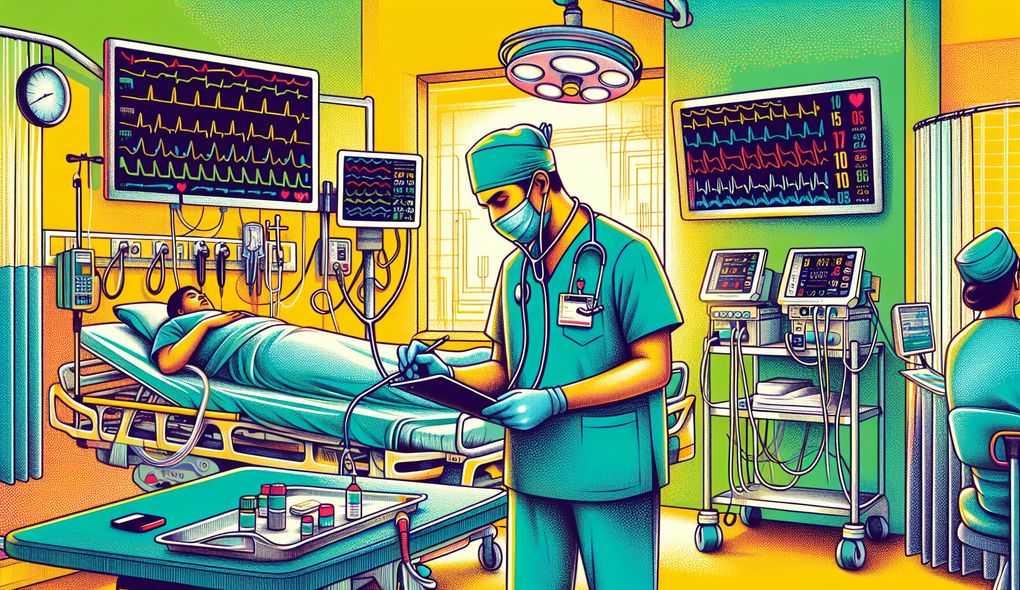How do you ensure that all patient-related documentation is up-to-date and accurate? Can you provide an example of a time when you encountered challenges with documentation and how you overcame them?
JUNIOR LEVEL

Sample answer to the question:
As a critical care nurse, ensuring that all patient-related documentation is up-to-date and accurate is crucial. To achieve this, I make it a habit to document information immediately after any interaction with the patient. For example, after administering medication, I enter the specifics into the electronic health record system while it is fresh in my memory. This helps in maintaining accuracy and timeliness of the documentation. In terms of challenges with documentation, I encountered a situation where the patient's record was missing crucial information regarding their allergies. To overcome this, I immediately notified the charge nurse and collaborated with the pharmacy team to obtain the missing information. We updated the patient's record promptly to ensure accurate and safe care moving forward.
Here is a more solid answer:
In my role as a critical care nurse, I prioritize accuracy and timeliness in patient documentation by following a systematic approach. I ensure that I document all patient interactions, assessments, and interventions promptly and accurately. For instance, if I administer medication, I document the medication name, dosage, route, and time in the electronic health record immediately after administration. This approach reduces the chances of errors or omissions. As for challenges with documentation, I recall a time when I discovered discrepancies in a patient's medical history during a routine assessment. I promptly brought this to the attention of the healthcare team, and we conducted a thorough investigation to ensure that the patient's record was accurate and comprehensive. We collaborated with the patient, family, and other healthcare professionals to gather the missing information and update the documentation appropriately. This experience reinforced the importance of thorough documentation to facilitate quality care delivery.
Why is this a more solid answer?
The solid answer provides a more comprehensive explanation of how the candidate ensures accuracy and timeliness of patient documentation. It includes specific examples and demonstrates expertise in the evaluation areas. However, it can be further improved by providing more details on the collaboration aspect of the answer.
An example of a exceptional answer:
As a critical care nurse, I understand the critical role of accurate and up-to-date patient documentation in providing high-quality care. To ensure this, I follow a meticulous approach. For instance, after any patient interaction, I take detailed notes using a standardized template, documenting the time, date, and specifics of the encounter. This includes vital signs, assessments, interventions, and any patient concerns. By immediately documenting these details, I maintain accuracy and timeliness. Regarding challenges with documentation, I encountered a situation where a patient's medical record was incomplete and inaccurate due to multiple care transitions. To address this, I initiated a collaboration with the patient, their family, and the healthcare team to conduct a thorough record review and reconciliation. We scheduled a multidisciplinary meeting to ensure all relevant information was obtained and accurately documented. Through this collaborative effort, we were able to update the patient's record, ensuring comprehensive and accurate documentation for future care decisions.
Why is this an exceptional answer?
The exceptional answer provides a detailed and comprehensive response to the question. It demonstrates a high level of expertise in the evaluation areas by using specific examples and showcasing exceptional attention to detail, time management, and collaboration skills. The candidate emphasizes the importance of immediate documentation and highlights a challenging scenario where they led a collaborative effort to address incomplete and inaccurate patient documentation.
How to prepare for this question:
- Familiarize yourself with the electronic health record system used in the organization. Practice documenting patient interactions and interventions in a timely manner.
- Develop a systematic approach to documentation to ensure consistency and accuracy. This may include using standardized templates and checklists.
- Stay updated with the latest documentation requirements and regulatory guidelines in critical care nursing. Attend relevant workshops or seminars.
- Improve your collaboration skills by actively participating in interdisciplinary meetings and engaging with colleagues from different healthcare disciplines.
What are interviewers evaluating with this question?
- Attention to Detail
- Time Management
- Collaboration

